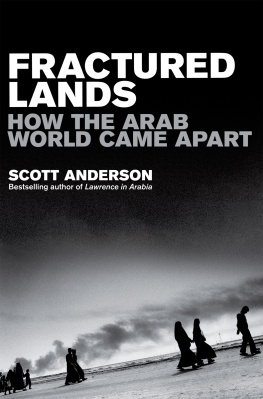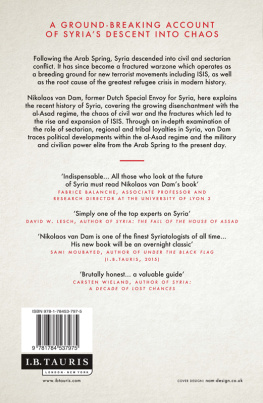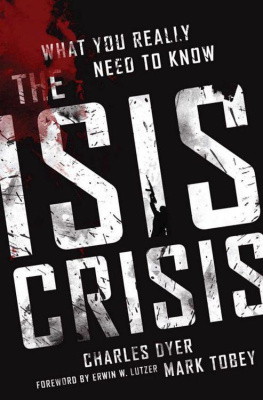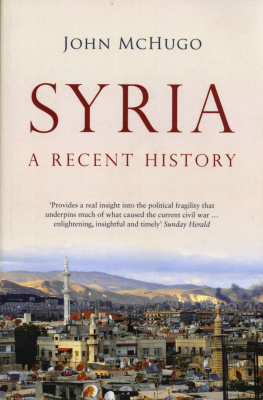SYRIA
BURNING
A Short History of a Catastrophe
CHARLES GLASS
With a foreword by Patrick Cockburn

This updated edition first published by Verso 2016
First published by OR Books 2015
Charles Glass 2015, 2016
Foreword Patrick Cockburn 2015, 2016
All rights reserved
The moral rights of the authors have been asserted
1 3 5 7 9 10 8 6 4 2
Verso
UK: 6 Meard Street, London W1F 0EG
US: 20 Jay Street, Suite 1010, Brooklyn, NY 11201
versobooks.com
Verso is the imprint of New Left Books
ISBN-13: 978-1-78478-516-1
ISBN-13: 978-1-78478-518-5 (US EBK)
ISBN-13: 978-1-78478-517-8 (UK EBK)
British Library Cataloguing in Publication Data
A catalogue record for this book is available from the British Library
Library of Congress Cataloging-in-Publication Data
A catalog record for this book is available from the Library of Congress
Printed in the US by Maple Press
For Lucien,
with love from Dad
and in memory of Armen Mazloumian,
proprietor of the Barons Hotel in Aleppo,
who refused to abandon his city and
died there on January 15, 2016
CONTENTS

THE WAR IN SYRIA HAS LONG NEEDED A good book to explain what and why it is happening. Few events in recent history have been subjected to so much inadequate and partial reporting and there are few writers who have the perception and experience to illuminate this terrible tragedy. Charles Glass is one of them: he knows Syria, Lebanon and the region extremely well and has been an eyewitness to its crises and wars since the 1970s. He has essential recent experience gained through his travels to Damascus, Aleppo, Homs and other parts of Syria since the conflict started in 2011 and a popular revolt rapidly transformed into a sectarian civil war.
It is difficult to write sensibly and with balance about a struggle in which all sides, including much of the media, is so partisan. From the early days of the Arab Spring, not just in Syria but in other countries caught up in these complex developments, journalists often crudely demonized one side and portrayed the other as unblemished democrats. Obvious contradictions were ignored: how, for instance, could the Syrian rebels be the secular democrats they purported to be when their most important supporters and financiers were Saudi Arabia, Qatar and the oil-states of the Gulf, whose rulers are the last theocratic absolute monarchies left on earth?
The media was not alone in its self-deception. Leaders in the US, Europe and the region assumed that President Bashar al-Assad would fall in 2011 or early 2012 because they had just seen Muammar Gaddafi overthrown and killed. This was despite the fact that, at his weakest, Assad controlled thirteen out of fourteen of Syrias provincial capitals. Only full scale US intervention, more along the lines of Iraq in 2003 than Libya in 2011, would have overthrown him. Rebels pretended that all they needed was some heavy weaponry and a few US air strikes to win, but this was never the case.
The Syrian war is today frequently compared to the Thirty Years War in Germany in the seventeenth century and, unlike many such historic analogies, this one reveals an important truth. As in Germany four hundred years ago, there are now so many players with divergent interests in Syria that the conflict is becoming impossible to end. Syrians have less and less influence over the fate of their country. To understand all this is not easy, and anybody who tries to do so must combine deep understanding of the region with up-to-date knowledge at ground level from one of the most dangerous places on earth. In this study, Charles Glass tells us more about the reality of Syria and its future than could be gained from any other single source.
Patrick Cockburn
2011: Harsh government suppression fans local demonstrations into a mass civil uprising and isolates the regime abroad.
MarchJune
Protesters in Deraa demand the release of a dozen teenagers who have been arrested for anti-regime graffiti and tortured. Security forces open fire, killing several demonstrators. This escalates and radicalizes the demonstrations, which spread to Damascus, Homs, Idlib and other population centers. President Bashar al-Assad pursues a two-pronged strategy, promising political reform while overseeing harsh military crackdowns on the protests. In May, government tanks move against demonstrators in Deraa and the suburbs of Damascus, as well as in Homs, which has become the center of the uprising. The oppositions call for a national strike is largely ignored in Syrias two most populous cities, Damascus and Aleppo. The following month sees government troops besiege the town of Jisr al-Shughour. The regimes brutal suppression provokes increasing international condemnation and in May the US and EU impose sanctions.
JulyOctober
In July, Syrian security forces reportedly kill more than 100 protesters in Hama. US Secretary of State Hillary Clinton declares that Assad has lost legitimacy. The crackdown pressures the Syrian opposition to become organized and militarized. Military defectors establish the Free Syrian Army (FSA) in July and in October, six months into the uprising, some opposition groups coalesce as the Syrian National Council (SNC). Its declared aim is to topple Assad within six months. The UN Security Council condemns widespread violations of human rights and the use of force against civilians by the Syrian authorities, but Russia and China veto a resolution threatening sanctions.
NovemberDecember
The Arab League suspends Syria and imposes sanctions. France calls for western military intervention, while Russia continues to arm the regime. Armed conflict between the FSA and regime soldiers is becoming the dominant dynamic on the ground, and in November the FSA launches a high-profile attack on a military base near Damascus. In December, two car bombs in Damascus kill 44 peoplethe opposition blames the regime, while the Syrian government and, later, US officials finger al-Qaeda. An Arab League observer mission enters Syria.
2012: The conflict escalates to all-out civil war. Foreign assistance to both sides fuels the violence and adds proxy wars to the internal conflict.
JanuaryApril
The Arab League observer mission withdraws in January, citing increasing violence. The same month sees the birth of a new rebel military faction, the al-Qaeda-affiliated al-Nusra Front, and in a videotape released soon afterward al-Qaedas Ayman al-Zawahiri urges Sunni Muslims to support the Syrian revolt. In February, the UN General Assembly votes 137-12 for Assad to resign. Russia and China veto a similar resolution at the Security Council. The Group of Friends of the Syrian People, a collection of more than 60 (later rising to more than 100) countries and organizations including France, Britain, Saudi Arabia, Turkey and the United States, proclaims the SNC a legitimate representative of Syria. The EU announces new sanctions, while former UN Secretary-General Kofi Annan is appointed UNArab League Special Envoy to Syria. Government forces and the FSA contend for control in Homs, Damascus and other major cities. In April, the Friends of Syria pledge economic support for opposition forces, while Saudi Arabia and the Gulf states announce a new fund for the FSA. A ceasefire brokered by Annan does not stem the violence.

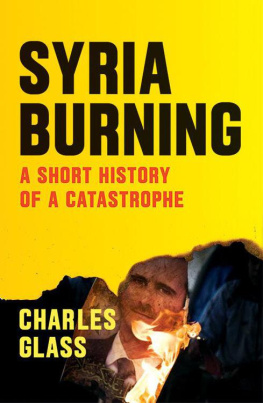
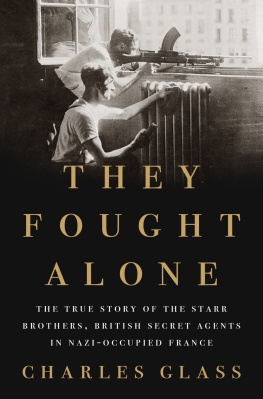
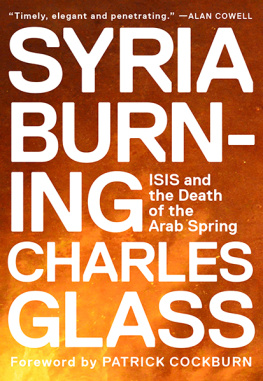
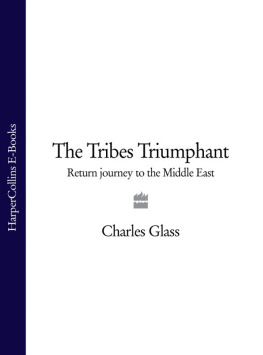
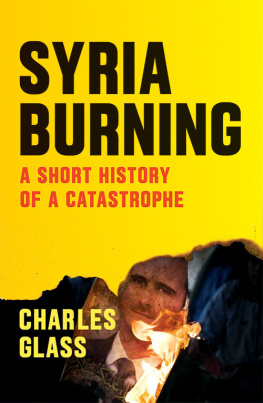
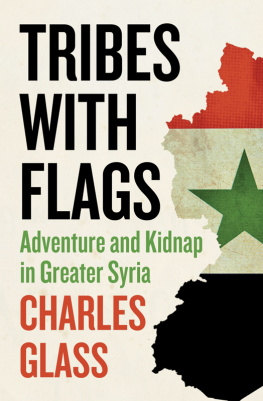
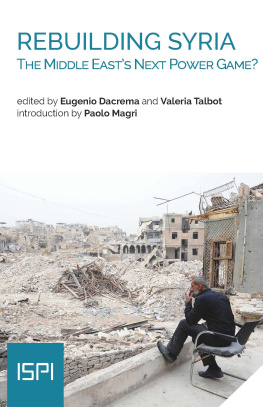

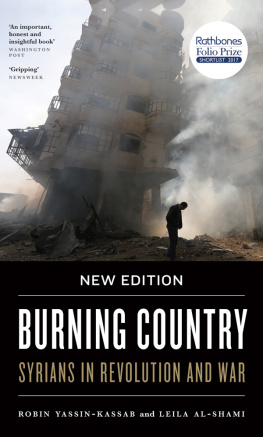

![Cockburn Patrick - Syria Burning: A Short History of a Catastrophe: [VersoUSAed]](/uploads/posts/book/207719/thumbs/cockburn-patrick-syria-burning-a-short-history.jpg)
